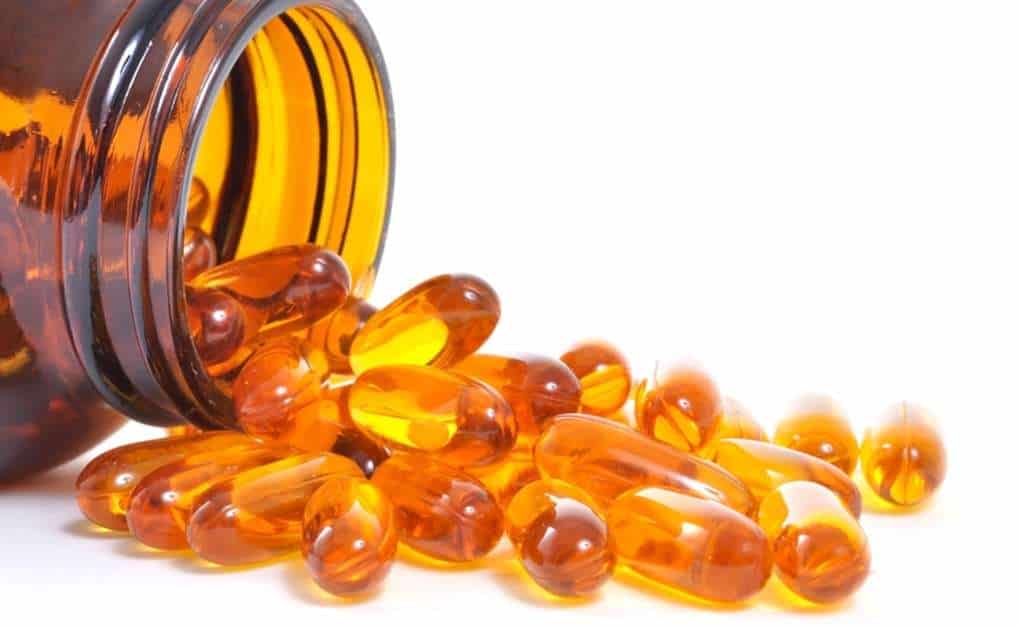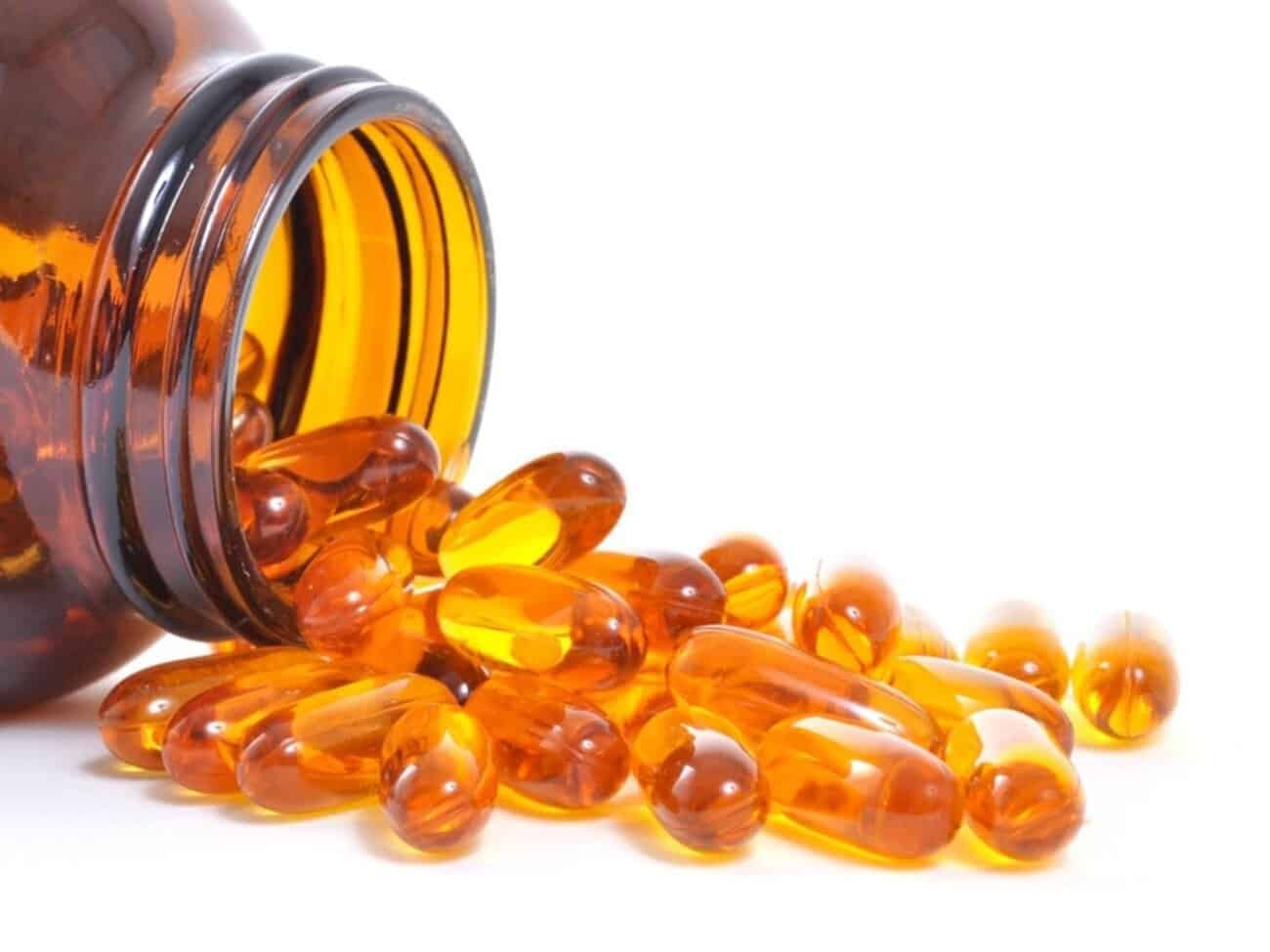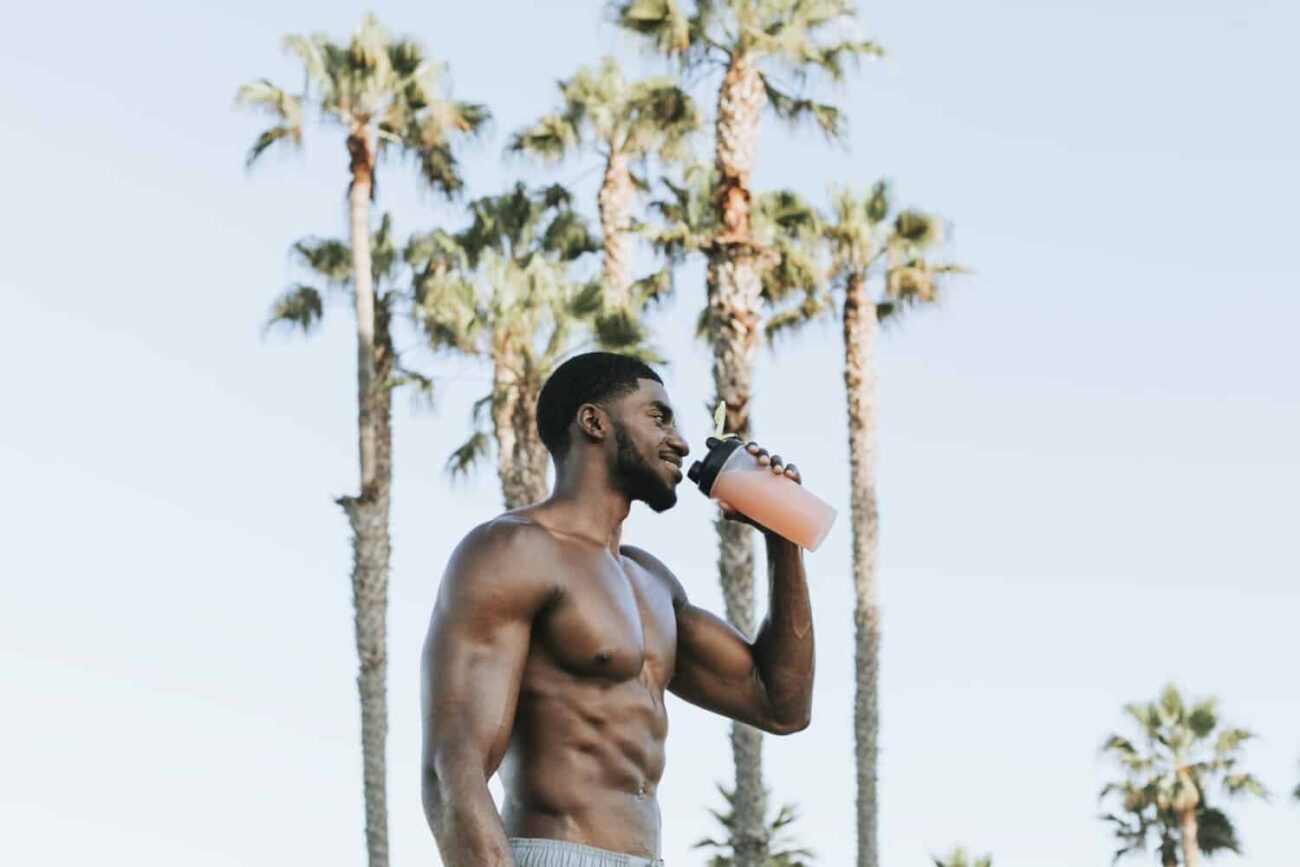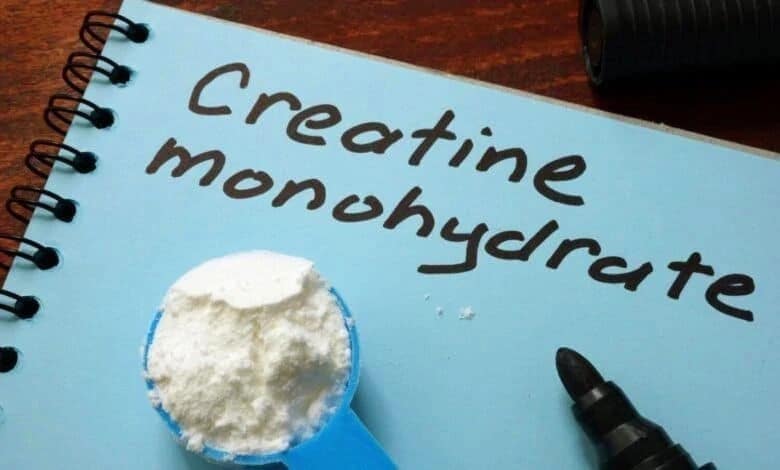Será a Vitamina D o melhor suplemento que podes usar nesta altura?
Content
to hide
O que é a Vitamina D?
A Vitamina D é um dos 24 micronutrientes essenciais ao ser humano, e pode ser ingerido ou sintetizado pela pele. Enquanto que nas épocas quentes é fácil conseguir bons níveis de Vitamina D, no inverno a história muda. O corpo produz esta vitamina através do colesterol, mas precisa de exposição solar para o fazer. Se não houver exposição solar, precisas de a ingerir através da alimentação, ou suplementação. Infelizmente, é difícil de conseguir bons valores desta vitamina através da alimentação. O leite fortificado com esta Vitamina normalmente fornece cerca de 30 UI por cada 100 ml. A gema do ovo? Menos de 50 UI. Já o salmão, dependendo do seu cultivo, pode chegar aos 300/400 UI, e a sardinha aproximadamente 200 UI. Basicamente, depender apenas da alimentação para conseguir bons níveis desta vitamina, não é uma boa estratégia e já vais ver porquê.
O que é que a Vitamina D faz?
A Vitamina D influencia imensos processos no organismo humano. Está associada ao sistema imunitário e a uma redução na probabilidade de contrair certos problemas de saúde. É também essencial para a saúde óssea e tem um papel importante no bem estar, com baixos níveis desta vitamina a serem associados a sintomas de mau humor e depressão. Como se não bastasse, é também muito importante para o sistema hormonal, com uma forte influência nos níveis de Testosterona.Does Vitamin D increase Testosterone?
A Testosterona é uma das principais hormonas quando o assunto é ganhar massa muscular e perder gordura. Níveis altos levam a mais força e massa muscular, níveis baixos levam ao aumento de gordura, pouca energia e dificuldade em ganhar músculo. No inverno, os níveis desta vitamina descem, afinal de contas, o sol vai de férias. Quando os níveis de Vitamina D estão baixos, os níveis de Testosterona baixam. Quando é introduzida a suplementação de Vitamina D em pessoas com baixos níveis desta vitamina, os valores de Testosterona sobem.Vitamin D and Testosterone
In a study with 2299 participants, all of them men, the values of Vitamin D, Testosterone and SHBG. Para além disso, examinaram também se os níveis de androgénios apresentavam uma variação sazonal. Ou seja, verificaram se no verão estes valores estão mais altos e se no inverno estão mais baixos, ou não. The results? Os homens com valores suficientes de Vitamina D apresentaram níveis de Testosterona e de androgénios significativamente mais altos em comparação aos que tinham valores insuficientes desta vitamina. Para além disso, os níveis de SHBG também se apresentaram significativamente mais baixos naqueles que contavam com Vitamina D suficiente em comparação ao resto. Para terminar, a altura do ano em que os níveis de Testosterona se apresentaram mais altos? August.Suplementação de Vitamina D
Noutro estudo com 54 homens saudáveis, mas com excesso de peso, foram medidos os níveis de Testosterona enquanto faziam um programa de redução de peso. Durante um ano, 31 deles receberam 3,332 UI de Vitamina D por dia, enquanto 23 não. No início do estudo, ambos os grupos apresentavam níveis de Vitamina D baixos (abaixo de 20 ng/mL) e os níveis de Testosterona também estavam baixos. O grupo que utilizou a suplementação, sem surpresa, viu os seus níveis de Vitamina D aumentar. No entanto, não foram só os níveis desta vitamina que aumentaram. O grupo que utilizou a suplementação de Vitamina D viu a sua testosterona total aumentar em cerca de 25%, a sua testosterona bioactiva em 19% e a testosterona livre em 20%. Já o grupo que não utilizou a suplementação, não teve mudanças signicativas em nenhuma destas áreas.
Recommended doses
A dose diária recomendada em Portugal é de apenas 200 UI. Isto é um valor extremamente baixo(1), ainda para mais tendo em conta a quantidade de factores que podem influenciar os níveis desta vitamina no organismo. Na Alemanha(2) e nos Estados Unidos(3), a dose diária recomendada foi recentemente alterada para 800 UI. Mas afinal de contas estamos em Portugal, um país com um clima muito mais quente do que o da Alemanha. Não precisamos de tanta Vitamina D como eles, certo?Miami
No ano de 2005 foi feito um estudo(4) para avaliar os níveis de Vitamina D na população do sul da Flórida. O sul da Flórida, em que a maior cidade é Miami, está localizado nos Estados Unidos, e goza de um clima tropical, ou seja, imenso sol ao longo de todo o ano. Para isso foram recolhidos dados de 212 pessoas, tanto homens como mulheres, no final do período de inverno. The results? 38% for men and 40% for women have insufficient levels of this vitamin.
Optimal doses
As doses recomendadas servem como valor mínimo para evitar graves problemas de saúde. Isto não significa que sejam as doses ideais. O valor mínimo ideal no organismo é de 20 ng/mL, sendo que o recomendado ronda os 30 ng/mL de 25(OH)D. Estes valores são obtidos através de análises, e por isso, se quiseres saber os teus valores de forma precisa, deves medir os níveis de 25(OH)D. Existem vários factores que influenciam os níveis de Vitamina D no organismo, e por isso, é impossível sugerir um valor perfeito para todas as pessoas. No entanto, o factor principal é sem dúvida a exposição solar. Uma pessoa a viver na Suécia precisa de ingerir maiores quantidades desta vitamina do que alguém a viver nas Canárias.Que dose utilizo então?
Deves ingerir no mínimo 1000 UI de Vitamina D3 por dia, e sempre com uma refeição com alguma gordura. No entanto, para atingires os valores ideais, principalmente no inverno, a ingestão deve ser superior. Entre 2000 a 4000 UI de Vitamina D3 por dia é um valor interessante para a maioria da população. Podes ainda calcular um valor aproximado através do teu peso corporal, multiplicando o teu peso actual por um valor entre 20 a 60 UI. Para além da exposição solar, factores como o tom de pele, a utilização de protectores solares(5) e a latitude influenciam a conversão desta vitamina no organismo. Tons de pele mais escuros precisam de maior exposição solar e a utilização de protectores solares reduz a produção de Vitamina D no organismo. Por fim, não deves exceder as 10 000 UI.Note.
Passar de um nível insuficiente desta vitamina para um nível adequado leva a um aumento de Testosterona. Isto não significa que por utilizares mais vais conseguir níveis mais altos desta hormona. Deves procurar atingir e manter níveis ideais de Vitamina D, não níveis excessivos e prejudiciais. Para além disso, estes valores são para pessoas saudáveis, por isso, se tens algum problema de saúde, deves sempre informar-te primeiro em relação ao teu caso específico. O ideal, será sempre fazeres análises para saber os teus níveis desta vitamina. O ideal e simples também. Basta pedires a qualquer médico quando fores fazer análises para acrescentar esta avaliação, ou simplesmente fazeres por ti mesmo em qualquer clínica de análises pedindo uma avaliação dos níveis de Vitamina D. Isto permite personalizares a tua suplementação de Vitamina D, em vez de ires por palpites.Vitamin D Supplements
Primeiro que tudo, deves optar por um suplemento de Vitamina D3 e não D2, já que o corpo a utiliza de forma mais eficiente. Depois, deves ter em conta a quantidade que pretendes utilizar e o preço. Ficam aqui dois produtos com uma boa relação preço/qualidade. Tens também a Myprotein offer, com 2500 UI por cápsula, mas que por 10,99€ traz consigo 180 cápsulas. Por fim, tens a Vitamina D3 da Zumub, que com 2000 UI por cápsula e um valor de 4,99€ por 120 cápsulas, é também uma excelente aposta. Podes ainda utilizar o código GVIRTUAL e conseguir um desconto de 10% em toda a tua encomenda. Está disponível here. Whatever your choice, you will certainly be well served.
Conclusion
A Vitamina D desempenha um papel importante em vários processos no organismo, sendo que o sistema hormonal é um deles. Basicamente, no inverno é fácil deixar cair os níveis desta vitamina para valores insuficientes, e corrigir isso, vai aumentar a tua Testosterona. Daí a importância deste suplemento nesta estação. Não só te vai ajudar no ginásio, como também fora dele, já que os benefícios da vitamina d são imensos. Já no verão, embora seja igualmente importante ter bons níveis desta vitamina no organismo, consegues atingi-los facilmente através da exposição solar, o que torna a sua suplementação em muitos casos desnecessária. Portanto, é a Vitamina D o melhor suplemento do inverno? Possibly.Summary
O que é a vitamina D?
A vitamina D é um nutriente essencial para manter a saúde dos ossos e do sistema imunológico. Além disso, desempenha um papel importante na absorção do cálcio pelo organismo.
Quais são os benefícios da vitamina D?
A vitamina D pode ajudar a fortalecer os ossos, prevenir doenças como osteoporose, reduzir o risco de certos tipos de cancro e melhorar a função do sistema imunológico.
How to get vitamin D naturally?
A exposição solar é a principal fonte de vitamina D. Passar cerca de 15 a 30 minutos por dia ao sol, com braços e pernas expostos, pode ajudar o corpo a produzir vitamina D. Além disso, alimentos como peixes gordurosos, ovos e laticínios também são boas fontes.
Quais são os sintomas da deficiência de vitamina D?
Os sintomas comuns de deficiência de vitamina D incluem fraqueza muscular, fadiga, dores ósseas, depressão e comprometimento do sistema imunológico. Pode também afectar os níveis hormonais, como os da testosterona.
Quais são os riscos da superdosagem de vitamina D?
A superdosagem de vitamina D pode levar ao acúmulo excessivo de cálcio no organismo, causando problemas como náuseas, vômitos, fraqueza muscular e danos aos rins.
References
Vitamin D and Testosterone Wehr E, Pilz S, Boehm BO, März W, Obermayer-Pietsch B. Association of vitamin D status with serum androgen levels in men. Clin Endocrinol (Oxf). 2010Aug;73(2):243-8. A suplementação de Vitamina D Pilz S, Frisch S, Koertke H, Kuhn J, Dreier J, Obermayer-Pietsch B, Wehr E, Zittermann A. Effect of vitamin D supplementation on testosterone levels in men. Horm Metab Res. 2011 Mar;43(3):223-5. (1) Whiting SJ, Green TJ, Calvo MS. Vitamin D intakes in North America and Asia-Pacific countries are not sufficient to prevent vitamin D insufficiency. JSteroid Biochem Mol Biol. 2007 Mar;103(3-5):626-30. (two) https://www.dge.de/wissenschaft/referenzwerte/vitamin-d/ (3) http://www.fda.gov/Food/GuidanceRegulation/GuidanceDocumentsRegulatoryInformation/LabelingNutrition/ucm385663.htm (4) Levis S, Gomez A, Jimenez C, Veras L, Ma F, Lai S, Hollis B, Roos BA. Vitamin d deficiency and seasonal variation in an adult South Florida population. J Clin Endocrinol Metab. 2005 Mar;90(3):1557-62. (5) Matsuoka LY, Ide L, Wortsman J, MacLaughlin JA, Holick MF. Sunscreens suppresscutaneous vitamin D3 synthesis. J Clin Endocrinol Metab. 1987 Jun;64(6):1165-8.



